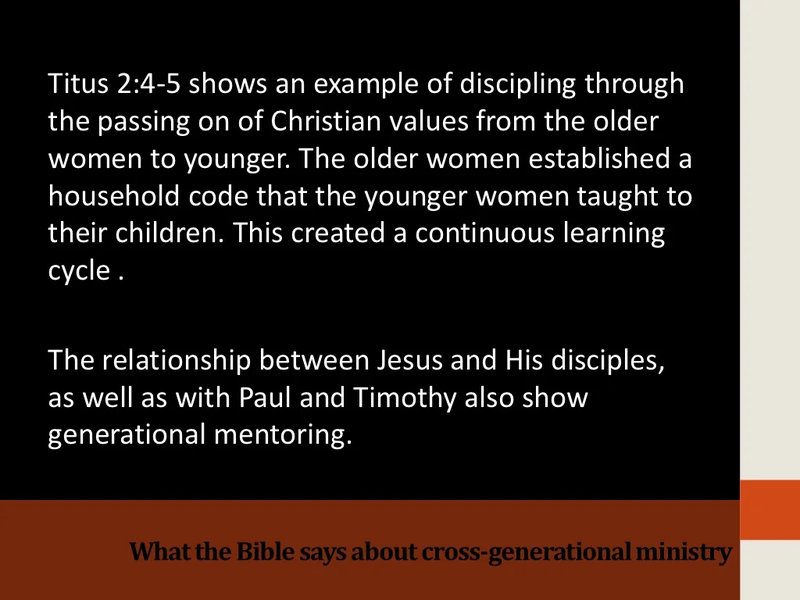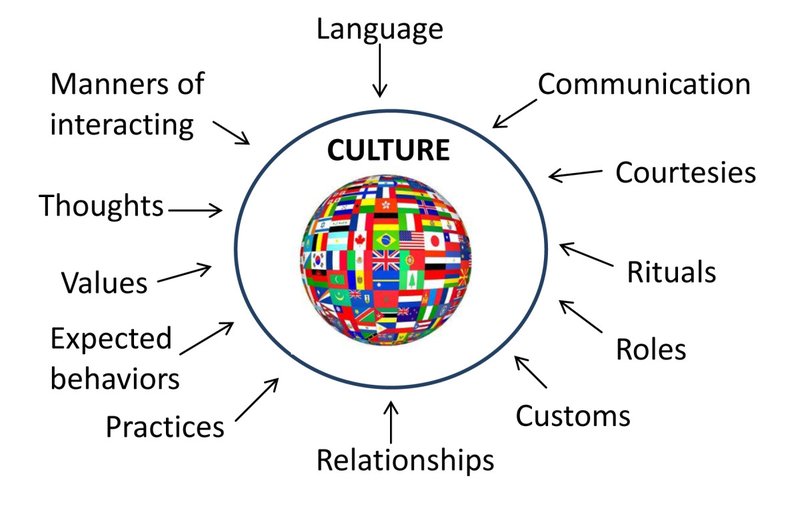· Fellowship & Ministry · 8 min read
Bridging Generations: Empowering Christian Communities through Intergenerational Ministry
Discover how intergenerational ministry in Christian communities fosters unity, growth, and mentorship through bridging generation gaps and promoting multi-generational worship. Explore the impact of youth mentorship programs, senior adult ministry, and family ministry integration.

Bridging Generations: Empowering Christian Communities through Intergenerational Ministry
Introduction
In today’s rapidly changing world, bridging the generation gap within Christian communities has become increasingly crucial. With advances in technology, shifting cultural values, and evolving societal norms, it can be challenging for different generations to connect and understand one another. However, intergenerational ministry offers a powerful solution to this problem, empowering Christian communities to thrive and grow amidst diverse age groups. By fostering relationships, mentorship, and shared experiences between generations, churches can create an environment that brings together young and old, allowing each generation to contribute their unique gifts and wisdom. In this article, we will explore the importance of intergenerational ministry in Christian communities and provide practical strategies for bridging the generation gap.
Why is intergenerational ministry important in Christian communities?
Intergenerational ministry plays a vital role in strengthening Christian communities by fostering unity, mutual understanding, and spiritual growth across generations. When different age groups come together and interact, they gain a broader perspective on life and faith. This interaction allows younger members to learn from the wisdom and experience of older generations while providing the older members with opportunities to invest in the future of the church.
According to the Outreach article “10 Ways to Bring the Generations Together at Your Church,” intentional studies addressing generational differences can be instrumental in bridging gaps between age groups. These studies provide information and education that challenge assumptions and misperceptions about others. By understanding each other better, church members can build empathy, respect, and appreciation for one another.
Furthermore, intergenerational ministry nurtures a sense of belonging and inclusivity within the church community. When people from different generations worship together, support one another, and participate in shared activities, they feel valued and connected. This sense of belonging encourages individuals to grow in their faith and actively engage in the life of the church.
How can churches implement youth mentorship programs?
Youth mentorship programs are an excellent way to bridge the generation gap in Christian communities. By pairing younger individuals with older mentors, churches create opportunities for intergenerational relationships to flourish. These relationships provide guidance, support, and spiritual nurturing to young people, while also allowing older mentors to invest in the next generation.
According to the Baptist Press article “10 Ways to Bridge Generation Gaps in Churches,” enlisting young leaders to oversee senior adult ministries can be beneficial. This approach allows young ministers to learn from older believers while leading and guiding senior adult ministries. By working together, different generations can share insights, experiences, and wisdom, ultimately strengthening the church as a whole.
Additionally, organizing intentional activities that encourage interaction between youth and older adults can foster meaningful connections. For example, churches can set up cross-generational prayer ministries, where students or young adults partner with senior adults as prayer partners. This allows them to get to know each other and their families better while sharing in the spiritual practice of prayer.
How can senior adult ministry be integrated into the larger church community?
Integrating senior adult ministry into the larger church community is crucial for fostering intergenerational connections and preventing isolation among older members. Often, senior adult ministries operate separately from other church activities, leading to a lack of interaction between different age groups. However, by intentionally bridging this gap, churches can create a more cohesive community where all generations feel valued and included.
According to the Baptist State article “10 ways to bridge generation gaps in churches,” creating a “grandparenting” ministry can be a powerful way to integrate senior adults into the larger church community. This ministry involves connecting seniors with younger individuals who may not have grandparents or significant older figures in their lives. By establishing mentoring relationships and offering support, seniors play an essential role in nurturing and guiding younger members of the church.
Furthermore, incorporating senior adults into multi-generational worship services can promote a sense of unity and appreciation for different generations. By involving seniors in the planning and execution of worship services, churches can benefit from their wisdom and experience while providing opportunities for younger members to learn from them. Multi-generational worship services can also include elements that resonate with different age groups, ensuring that everyone feels included and engaged.
How can family ministry integration bridge generation gaps?
Family ministry integration is a powerful approach to bridge the generation gap within Christian communities. Family ministry focuses on equipping and supporting families as they navigate their faith journeys together. By actively involving parents, children, and grandparents in the life of the church, it creates an environment that fosters intergenerational connections and growth.
The Outreach article “10 Ways to Bring the Generations Together at Your Church” suggests planning intentional studies that address the unique needs and challenges faced by different generations within families. These studies provide valuable insights into generational differences, helping families understand and appreciate one another better.
Furthermore, organizing annual family mission trips can bring multiple generations of families within the church together. These trips provide opportunities for different age groups to work side by side, serving others and strengthening their bonds. Participating in missions together not only builds intergenerational relationships but also allows families to model the importance of service and faith in action to younger generations.
How can churches create multi-generational worship experiences?
Multi-generational worship experiences are essential for bridging the generation gap in Christian communities. By designing worship services that cater to the needs and preferences of different age groups, churches can create an inclusive environment where all generations feel valued and engaged.
According to ChuckLawless.com’s article “10 Ways to Bridge Generation Gaps in Churches,” planning intentional studies addressing the generations can help churches design worship services that resonate with different age groups. Understanding each generation’s unique preferences, cultural backgrounds, and spiritual needs allows churches to incorporate elements that appeal to all.
Additionally, involving representatives from different generations in the planning and execution of worship services can ensure their inclusivity. By inviting input and ideas from diverse age groups, churches demonstrate their commitment to valuing and honoring the contributions of each generation.
How can churches engage younger generations in their ministries?
Engaging younger generations in church ministries is essential for building a thriving and vibrant community. By involving younger individuals in meaningful ways, churches demonstrate their commitment to nurturing and empowering the next generation of leaders.
In the article “How to Bridge the Generational Gap in the Church” on Faith Island, it is suggested that churches foster personal connections with young people by being friendly and reaching out to them outside of church activities. Simple gestures like sending birthday cards, offering assistance with household chores, or congratulating them on their achievements can go a long way in making young people feel valued and connected.
Furthermore, churches can create opportunities for younger generations to actively participate in decision-making processes and leadership roles. By providing platforms for their voices to be heard and empowering them to contribute their unique gifts and perspectives, churches inspire young people to take ownership of their faith and invest in the life of the church.
How can intergenerational ministry benefit the overall health of Christian communities?
Intergenerational ministry has numerous benefits that contribute to the overall health and vitality of Christian communities. By bridging the generation gap, churches create an environment where wisdom, experience, and fresh perspectives can coexist harmoniously, leading to spiritual growth and a sense of belonging for all members.
According to the Baptist Press article “10 Ways to Bridge Generation Gaps in Churches,” when different generations learn from each other, the church becomes stronger. Intergenerational relationships promote mutual learning, respect, and understanding. Younger generations gain wisdom and guidance from older believers, while older adults are energized by the enthusiasm and fresh perspectives of younger members.
Moreover, intergenerational ministry strengthens the fabric of the church community by fostering unity and inclusivity. When people from different age groups worship, serve, and engage in shared activities together, they form bonds that transcend generational differences. This unity creates a supportive and nurturing environment where individuals can grow in their faith and actively participate in the mission of the church.
Conclusion
Intergenerational ministry is essential for empowering Christian communities to thrive amidst diverse age groups. By intentionally bridging the generation gap, churches create environments that foster unity, mutual understanding, and spiritual growth across generations. Implementing youth mentorship programs, integrating senior adult ministry into the larger church community, promoting family ministry integration, creating multi-generational worship experiences, engaging younger generations in ministries, and reaping the benefits of intergenerational relationships all contribute to the overall health and vitality of Christian communities. As churches embrace intergenerational ministry, they empower individuals from all generations to actively participate in the life of the church and fulfill their unique roles in God’s kingdom.



